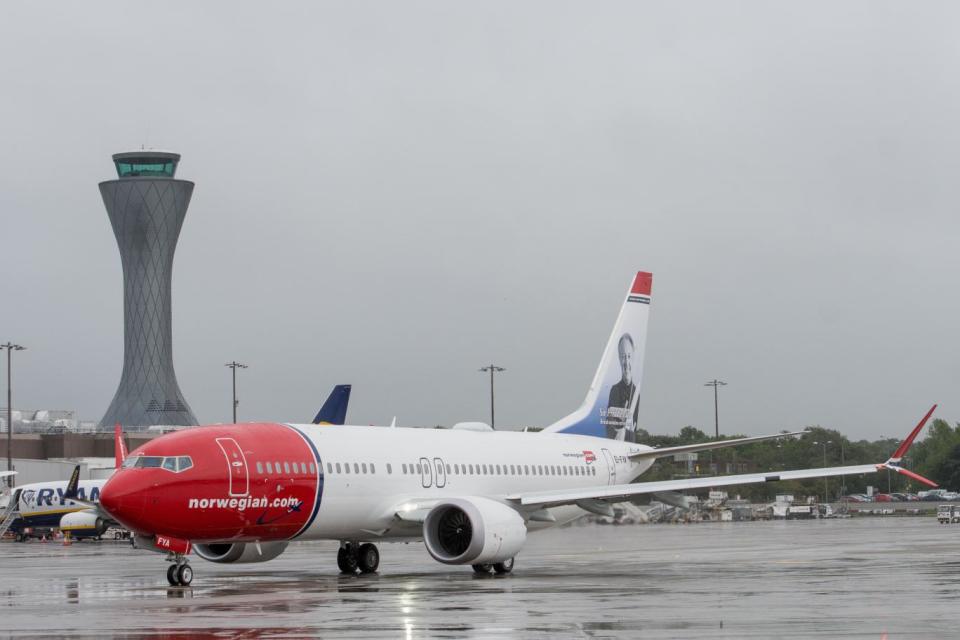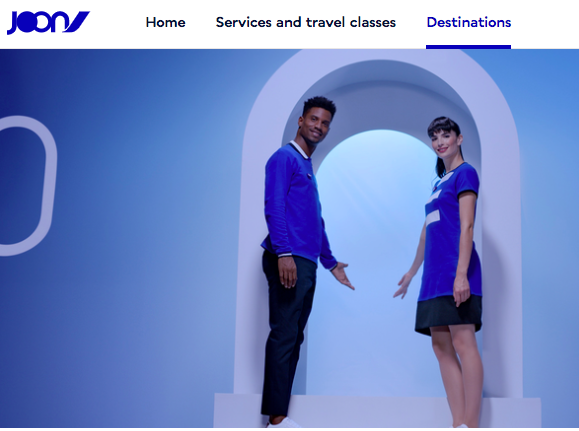Freddie Laker flies again, as ‘legacy’ airline rivals copy his business plan

On the eve of the 40th anniversary of the maiden flight of the Laker Skytrain, leading airlines have announced expansion plans for their own low-cost, long-haul offshoots.
Tuesday 26 September marks four decades since the no-frills revolution began in Europe, with the launch of the Laker Skytrain. “This is geared, and built, for the instant traveller,” promised Freddie Laker at Gatwick airport. “We’ve got 345 empty seats every day.”
The aviation entrepreneur had battled for six years with entrenched interests for the right to offer cheap fares across the Atlantic before a DC-10 christened Eastern Belle finally took off: destination New York, JFK.
Passengers paid £59 each way, around half the prevailing London-New York fare, with onboard meals and drinks available at extra cost. Skytrain quickly caught the public imagination and expanded travel horizons, and Sir Freddie was knighted for services to aviation in 1978.
The liberalisation now entrenched in Europe and the US owes much to the maverick who “fought, kicked, shouted” for the right to cut fares and expand choice.
A Twitter poll conducted for The Independent received more than 1,100 responses, with 78 per cent saying that Sir Freddie Laker had transformed aviation.
Some of the respondents added their memories of the era. Others pointed at reasons for the collapse of Laker Airways in 1982.
Bill Wilson tweeted: “I flew Gatwick to LA on a Jamaican Airways plane when all the Skytrains had been grounded.”
“Just remembered their offices at Gatwick had no lifts,” commented an ex-employee. “Guess whose office was on the ground floor? Freddie’s. He put the willies up all the major airlines at the time.”
The chosen aircraft, the DC-10, was temporarily grounded in the summer of 1979 because of safety fears after a series of crashes. The grounding cost Laker millions in lost revenue, higher costs for chartering in aircraft and some public confidence in the DC-10 fleet.
Laker’s rivals – British Airways, Pan Am and TWA – mostly flew across the Atlantic with better-regarded Boeing 747 Jumbo jets. These competitors introduced standby fares at only a pound or two more than Skytrain fares, while offering inflight meals and a wider range of departures.
The Skytrain concept soon grew beyond New York, with Miami and Los Angeles the next targets for Sir Freddie. Scottish travellers got a taste for cheap transatlantic travel, too, as Prestwick connected with New York and Florida – including Tampa, on the Gulf coast.
At a time of economic turbulence and with competitors prepared to respond ruthlessly, relentless rapid expansion proved fatal. Laker Airways collapsed on the morning of 5 February 1982, owing £270m.
Three years after the failure, rival transatlantic airlines settled a lawsuit that alleged they had colluded to cut fares and force Sir Freddie out of business. Although there was no admission of guilt, tens of millions were handed out to refund Laker ticket holders, pay staff the wages they were owed and give the founder himself $8m (£6) – “plus change”, as Sir Freddie was fond of saying.
The entrepreneur launched two further versions of Laker Airways. The first, a reincarnation of Skytrain, did not last - though its key route, Gatwick to Fort Lauderdale, is now fought over by British Airways and the low-cost airline Norwegian. The second was Laker Bahamas. His son, Freddie Jnr, recalls it was "a regional airline that dad ran successfully and profitably for 13 years until a hurricane wiped all the hotels off Grand Bahama". Sir Freddie died in 2006.
Laker’s experience helped guide Richard Branson in the creation of Virgin Atlantic, launched in 1984, and inspired Norwegian – which has named one of its transatlantic Boeing 737s after Sir Freddie. On the 40th anniversary, it will fly from Cork to Providence, Rhode Island.

Belatedly, the giant legacy airlines are addressing the latent demand for commoditised intercontinental travel.
Willie Walsh, chief executive of BA’s parent company, IAG, says the same transatlantic model is proving so successful that his low-cost, long-haul airline, Level, will soon expand from two to 30 aircrafts.
Level launched in June 2017, serving Buenos Aires, Los Angeles, Oakland (the secondary airport for San Francisco) and Punta Cana in the Dominican Republic from its hub in Barcelona.
Mr Walsh told delegates at the World Routes 2017 conference in the Catalan capital that Level’s present two-aircraft operation would grow 15-fold by 2022.
IAG is an Anglo-Spanish enterprise, one-fifth owned by Qatar Airways. But the EU-US open-skies agreement allows it to set up transatlantic bases in Paris and Rome, which Mr Walsh indicated were the next targets. The Italian capital is thought to be the favourite; it currently has only one daily flight to Los Angeles, on the struggling airline Alitalia, and no link with the San Francisco area.
Also on the eve of the 40th anniversary of Skytrain, Air France launched an interestingly named budget offshoot, Joon, with long-haul links to the Seychelles and Fortaleza in Brazil. The name is believed to be a play on jeune, and intended to evoke youth.

Ben Schlappig, who writes the One Mile At A Time blog, concluded: "It’s pretty clear the reason for Joon is to be able to lower operating costs on larger planes (for smaller planes, Air France already has their subsidiary Hop), and frankly I’m surprised they got the flight attendant union to agree to this."
Laker’s view of rival airlines was scathing: “It never occurred to them that there was a fourth class out there called the human race, who just want to fly at the lowest fare.”
It seems they are finally learning. As the battle for the cheap seats intensifies, Willie Walsh said of his budget brand, Level: “People flying with us are predominantly not people who would have flown with us before.”


